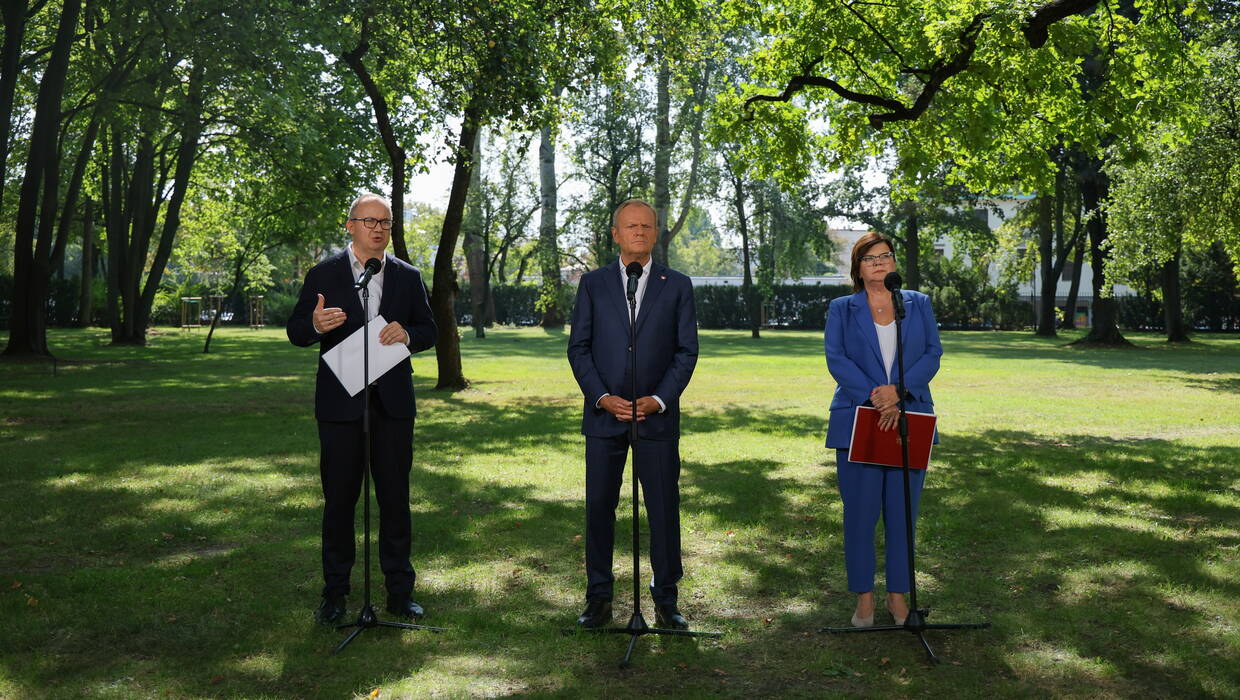
After a severe tightening of the abortion laws under the previous socially-conservative Law and Justice (PiS) government in 2020, abortion is currently permitted in Poland only if the pregnancy is the result of rape, incest or if it threatens the health or life of the mother. Poland has one of the strictest abortion regulations in the EU.
Tusk told a Friday press conference, held jointly with Health Minister Izabela Leszczyna and Justice Minister Adam Bodnar, that although there is currently no possibility of changing the current law on abortion, the government "wants to change the realities of its application."
Recently, subsequent attempts in the Sejm, lower house, have shown that it is difficult to gain a majority in favour of bills that would legalise abortion up to the 12th week of pregnancy.
"This does not mean that we remain idle when it comes to providing such opportunities for women in early pregnancy who, for various reasons ... decide that they should have the opportunity to have a legal abortion," Tusk said.
He added that the government is looking for ways to enable practical access to legal abortion, and this will be achieved by an interpretation of the current law on termination of pregnancy in the form of guidelines for hospitals and doctors, developed jointly by the ministries of justice and health.
Commenting on the guidelines, Leszczyna said that a single medical opinion confirming the existence of a risk to the woman's health, including, for example, a certificate from a psychiatrist, is sufficient for the procedure of terminating pregnancy. She added that this principle is not currently observed.
"If a healthcare facility requests a second medical opinion or convenes a medical concilium, this should be considered as hindering access to a medical procedure included in the basket of guaranteed benefits," she added.
Bodnar recalled the guidelines for prosecutors issued in early August on how they should act in cases concerning the refusal to terminate pregnancy and medical abortion. These include the Patient Rights Ombudsman's interpretation of 1993 abortion laws, which states that the concept of health (of a woman – PAP) should be interpreted not only in terms of somatic health but also mental health."
Therefore, Bodnar added, a decision to perform an abortion for reasons of mental health protection "is absolutely permissible under the law."
The guidelines on the applicable legal regulations concerning access to the procedure for terminating pregnancy are addressed to hospital directors, heads of hospital departments and wards.
They state that a threat to a woman's life or health is two independent premises and that the occurrence of only one of them is sufficient to terminate the pregnancy, and the list of indications for abortion in this premise is not final. Moreover, the regulations use the general category of health and do not in any way determine what area this health threat should concern. It can be both physical and mental. (PAP)
mr/aj



